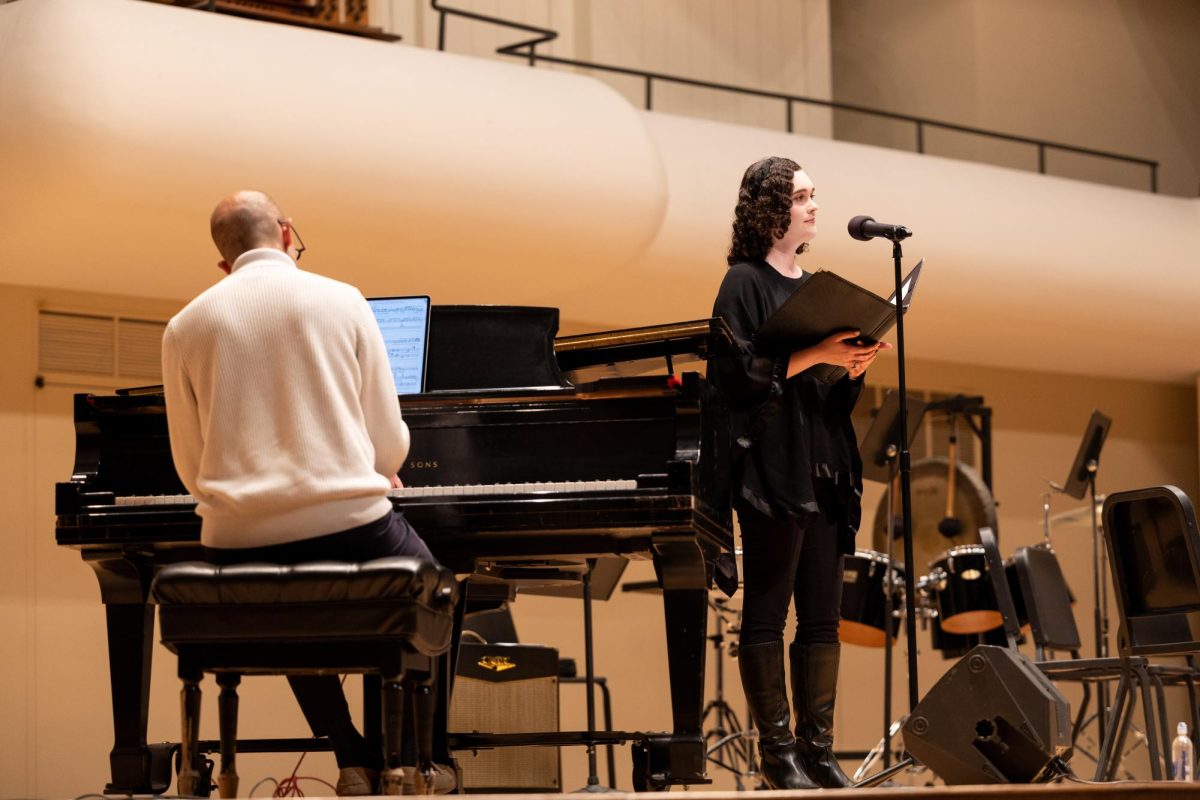When this year’s seniors cross the graduation stage, some will have an extra cord draped around their necks, and some will not.
While the Honors College does a great deal to encourage civic engagement and a community environment within the college, students are finding it difficult to complete the required academic components, not because of a lack of scholastic effort or skill, but because actually registering for the classes and fitting them into schedules can prove problematic.
According to Alicia Browne, the Director of Honors College Relations, the college recognizes the problems that many students face and is trying to improve its offerings.
“In general, we find that motivated honors students are excited to remain involved with the Honors College for a variety of benefits, including our rich array of seminars, co-curricular experiences, and sense of community within honors,” Browne said.
Victoria Parrott is a junior majoring in mechanical engineering. With her high ACT scores and high school GPA, she was able to secure a spot in the Honors College as an incoming freshman. She lived in honors housing and attended honors events, but soon realized that with her demanding degree, it would be impossible for her to complete the Honors College course requirements without staying for an extra semester.
“For me it was really hard because I came in with AP credit that counted for all of those pre-req classes,” Parrott said. “So when I got here, my options were to not use the AP the credit and take classes that I had already gotten credit for or to take something totally off the wall, and I can’t do that because there’s only so much time.”
A mechanical engineering degree from the University requires 126 hours of classes that are directly in line with the course flow chart created by the department, and there are no honors versions of mechanical engineering classes. Essentially the only time to fulfill the honors requirements is during the entry-level science and liberal arts pre-requisite classes.
“I’ve never been able to figure out what the fundamental difference is in classes,” Parrott said. “I don’t know how you differentiate somebody with a really high engineering GPA who just so happens to need to come and take honors English from the University and somebody else with a high engineering GPA who didn’t because of AP credit. From my perspective, it comes down to how they define what honors is.”
Tatianna Zambrano, a sophomore majoring in psychology, has run into a different issue. She is actively involved with Honors as a volunteer for Engage Tuscaloosa, but she is also having trouble completing course requirements. Her issue, however, stems from a complication with advising.
“At Bama Bound, I remember they told us about being in the Honors College, and the guy that was helping me knew that I was in the Honors College, and he said, ‘Oh, you can take UH classes,’ but I had no idea you can take honors versions of normal classes,” Zambrano said. “I’m a first generation college student. I had no idea about any of this.”
Zambrano feels that the Honors College should improve the advising process for its students in order to avoid detrimental miscommunications.
“I think [the Honors College] should have advisors or give each college’s advisors a rundown of the classes that people can take for credit,” Zambrano said. “Or they should teach the Honors Ambassadors how to advocate for certain classes.”
The Honors College is limited on the number and variety of classes they can offer because they rely on adjunct faculty to teach the courses.
“With a small core Honors College faculty, we rely on adjunct faculty from across campus and the community to augment our Honors College courses,” Browne said. “This adds a real richness to our offerings and allows us to harness the expertise across the community. At the same time, it does mean that Honors College offerings can increase and decrease, depending on faculty availability.”
This situation makes it more challenging for students earnestly trying to complete their degree as an honors student to register for their necessary classes. The small class sizes involved in the Honors College present frustrations as well as benefits.
“The attraction of Honors College seminars is that they are limited to 15 people,” Browne said. “The ability to interact in a small setting with faculty and fellow students creates a unique environment. It also means that students cannot always get into every class they want, but we know that they would rather have small classes, even with high demand, than to have larger honors seminars that lose the essence of the seminar.”








